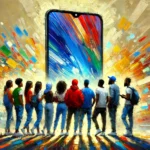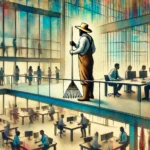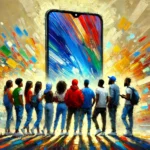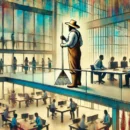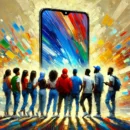Talent isn’t what you have, it’s what you can do

What is “talent?”
The word has been on everyone’s lips for a while. CEOs use it all the time; Human Resources folks drop it into every conversation. The talent advantage. The war for talent. But what is this thing? Does it refer to innate skills? Acquired knowledge? Expertise that comes from experience? Knowhow? Street-smarts? Knowing how to play the game?
Organizational Psychologist and author Tomas Chamorro-Premuzic has a thoughtful formulation. He points out that for most of human evolution, talent was mostly physical. You survived and did well in life if you were strong, or quick, or brave. In most of our history, when someone stood out it was because that human was able to thwart or lead attacks, or hunt and carry, or bear children, or survive disease.
No more than a few centuries ago, humans began to be valued for their minds as well as their bodies. We became aware of a powerful tool inside our craniums, one that could be more useful than mere brawn – our brain.
More recently, we started to calibrate and institutionalise what our brains could do – we began developing a new form of talent, intellectual capital. People were taught things formally, and their performance recorded and certified. Talent became both the credentials you carried, and what uses you applied your training to. That has been the dominant paradigm for quite a while: study in a reputable institution; depart with a certificate that signals you are employable; apply your formal skills to your work; develop experience and expertise as you go; get better work. Be happy.
The coming decade will turn all of that on its head. Your formal expertise and your job experience will no longer be as valuable as you hoped they would be for the rest of your life. You now need to invest more in your psychological capital – your ability to understand and work with other humans. You will be hired more for your potential achievements, not your past ones.
What does it mean to have potential in this ever-changing world? It is a combination of being smart, no doubt (alert, aware, able to process fluid situations); but also being curious and open to change; and finally having a healthy dose of humility and the ability to be self-critical. Your ability to learn at speed becomes the key predictor of future success.
This is a very significant change from what we meant by talent in the recent past. Those who will succeed in the coming era will not be defined by their looks, their charisma, their degrees, their years on the job. They will be shaped by their ability to learn, unlearn and relearn – all of their lives.
You can’t do that stuff if you are rigid, inflexible, smug or arrogant. You can’t do it if you are still talking about the school or university you attended decades ago. You can’t do it if you rely on a fixed set of intellectual tools.
The coronavirus pandemic has accelerated this dramatic change even further.
What happened to you once you discovered the world was different overnight, back in February or March? When you could no longer see your work colleagues face to face, brainstorm together, or bond in person? When you couldn’t go to your customers’ premises to check out what’s happening? Did you freeze, or did you adapt?
Those who froze tried denying there was anything to worry about. When that failed they complained a lot. When that didn’t work they moved on to dissing working from home and resisted using new digital tools. Then they pushed themselves and others into taking irrational risks. Their intellectual capital, frozen as it was in bygone eras, was of no use.
Those who adapted, on the other hand, quickly figured out that this damn virus would be around for a while and could not be wished away. They assessed the odds they faced and learned how to take calculated risks, not wishful ones. They looked at alternative ways of connecting, working and bonding. They figured those ways out, took delight in them, and learned a whole new box of tricks very, very quickly.
I have watched many such folks quickly become whizzes in virtual meetings and digital teamwork platforms. They did not sit on their hands praying for a vaccine; they saw that the future will in any case demand both in-person and software-led interactions. They are now busy trying to make the best of both worlds, so that they can stay relevant and effective in future.
They did this because they were both curious and agile when the music changed. And perhaps more importantly, because they were humble in the face of something far bigger than themselves.
Now that’s talent.
(Sunday Nation, 9 August 2020)

Buy Sunny Bindra's book
UP & AHEAD
here »
Popular Posts
- What is a nation?June 30, 2024
- To be a great leader, think like a farmerJuly 21, 2024
- Don’t be surprised by surprisesJuly 14, 2024
- It takes mavericks to change the gameJuly 7, 2024
- Why we should all be activistsJune 16, 2024



